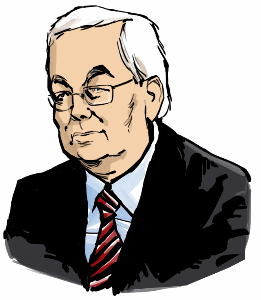© Gunnar Tómasson
11. desember 2015
I. …er þrælar skyldu at bana verða.
(Landnáma, 7. kafli, 1. hluti)
44844
26856 = „Lítit lagðist hér fyrir góðan dreng, er þrælar skyldu at bana verða,
17988 = ok sé ek svá hverjum verða, ef eigi vill blóta.”
44844
II. Dag skal at kveldi lofa
44844
1000 = Heimsljós
5596 = Andlig spekðin
4545 = Hjörleifr
33603 = Persei sub rupibus antri Indignata sequi torquentem cornua Mithram.¹
100 = Leikslok
44844
III. Þrælar finna Hjörleif dauðan
(Landnáma, lok 6. k.)
121700
16056 = Vífill ok Karli hétu þrælar Ingólfs.
24668 = Þá sendi hann vestr með sjó at leita öndvegissúlna sinna.
26146 = En er þeir kómu til Hjörleifshöfða, fundu þeir Hjörleif dauðan.
20532 = Þá fóru þeir aftr ok sögðu Ingólfi þau tíðendi.
16021 = Hann lét illa yfir drápi þeira Hjörleifs.
103423
Dagur að kveldi
(Kristnitaka að hætti Njálu)
-7 = Afhausun Mannskepnu Sjöunda dags
10 = Höfuð mælir tíu er það flýgur af bolnum
Kristnitaka
7000 = Microcosmos – Sköpun/Maður í Mynd Guðs
11274 = Fara menn við þat heim af þingi.
18277
103423 + 18277 = 121700
IV. Dráp Snorra og Kristnitaka
(Goðsögn feðranna)
121700
1 = Monad/Guð
345 = Grunnflötur Mannssálar
666 = Mannskepna
12685 = Höfðingjaskipti varð í Nóregi.
216 = Upprisa Mannssálar
432 = Rétt Mál Manns
2307 = 23. september
1241 = 1241 A.D.
25920 = Stórár Platons
13159 = Ártíð Snorra fólgsnarjarls
4000 = Logandi Sverð
33603 = Persei sub rupibus antri Indignata sequi torquentem cornua Mithram.¹
15851 = „Þat ætla ek at þú kveðir betr en páfinn.‟
11274 = Fara menn við þat heim af þingi.
121700
V. Sturla Þórðarson flytur Konungi kvæði
(Sturlu þáttr, 2. k.)
228274
12008 = Gaf konungi eigi at sigla þann dag.
23333 = En um kveldit, áðr hann fór at sofa, lét hann kalla á Sturlu.
18842 = Ok er hann kom, kvaddi hann konung ok mælti síðan:
10731 = „Hvat vilið þér mér, herra?”
16594 = Konungr bað taka silfrker, fullt af víni,
19928 = ok drakk af nökkut, fekk síðan Sturlu ok mælti:
10799 = „Vín skal til vinar drekka.”
6861 = Sturla mælti:
9229 = „Guð sé lofaðr, at svá sé.”
5911 = „Svá skal vera,”
7037 = segir konungr.
14107 = „En nú vil ek, at þú kveðir kvæðit,
16532 = þat sem þú hefir ort um föður minn.”
10130 = Sturla kvað þá kvæðit.
23344 = En er lokit var, lofuðu menn mjök ok mest dróttning.
7037 = Konungr mælti:
15851 = „Þat ætla ek, at þú kveðir betr en páfinn.”
228274
VI. The Man Who Saw Through Time
Sir Francis Bacon
89166²
Abraham Cowley [1618-1667 A.D.] wrote an ode to the Royal Society, it is often quoted…..
15954 = Bacon, like Moses, led us forth at last,
14024 = The barren wilderness he past,
11611 = Did on the very border stand
10762 = Of the blest promis’d land
21661 = And from the mountain’s top of his exalted wit,
15154 = Saw it himself, and shew’d us it.
89166
VII. Smiðshögg Heilags Anda og Ara fróða
(Spásögn)
17408
1 = Monad/Guð
10773 = Spiritus Sanctus
7998 = Ari Þorgilsson
5596 = Andlig spekðin
-6960 = Jarðlig skilning
17408
IV + VI + VII = 121700 + 89166 + 17408 = 228274
¹ Sjá Svona er feðranna frægð…, 10. des. 2015.
Background on Sir Francis Bacon
Loren Eiseley
(The Man Who Saw Through Time)
Not all men are fated like Sir Francis Bacon, to discover an unknown continent, and to find it not in the oceans of this world but in the vaster seas of time. Few men would seek through thirty years of rebuff and cold indifference a compass to lead men toward a green isle invisible to all other eyes. “How much more,” he wrote in wisdom, “are letters to be magnified, which as ships pass through the vast seas of time, and make ages so distant to participate of the wisdom, illumination, and inventions, the one of the other…..” “Whosoever shall entertain high and vaporous imaginations,” he warned, “instead of a laborious and sober inquiry of truth, shall beget hopes and beliefs of strange and impossible shapes.” It is ironic that Bacon, a sober propounder of the experimental method in science – Bacon, who sought so eloquently to give man control of his own destiny – should have contributed, nevertheless, to that world of “impossible shapes” which surrounds us today.
Appropriately there lingers about this solitary time voyager a shimmering image of fable, an atmosphere of mystery, which frequently closes over and obscures the great geniuses of lost or poorly documented centuries. Bacon, who opened for us the doorway of the modern world, is an incomparable inspiration for such myth-making proclivities. Rumors persist that he did not die in the year 1626 but escaped to Holland , that he was the real author of Shakespeare’s plays, that he was the unacknowledged son of Queen Elizabeth. Rumor can go no further; it is a measure of this great discoverer’s power to captivate the curiosity of men – a power that has grown century by century since his birth in 1561. In spite of certain mystifying aspects of his life, there is no satisfactory evidence sufficient to justify these speculations, though a vast literature betokens their fascination and appeal. (The Man Who Saw Through Time, Revised and enlarged edition of Francis Bacon and the Modern Dilemma, Charles Scribner’s Sons, New York, 1973, pp. 49-50)
Dr. William Rawley
(Resuscitatio)
I have been induced to think, that if there were a Beam of Knowledge derived from God upon any Man in these Modern Times, it was upon him; for though he was a great Reader of Books, yet he had not his Knowledge from Books, but from some Grounds and Notions within himself.” (1670, Ed. P. 9. Dr. W. Rawley, for many years his chaplain, secretary and confidant. (Alfred Dodd, Francis Bacon’s Personal Life-Story, Rider & Company, London , 1986, p . 89.)
Catherine Drinker Bowen
(Francis Bacon – The Temper of a Man)²
…Thomas Tenison, later Archbishop of Canterbury, in 1679 published a book entitled Baconiana, or Certain Genuine Remains of Francis Bacon. “Such great wits,” wrote the Archbishop, “are not common births of Time. Nature gives the world that ind ividual species, the phoenix, but once in five hundred years…. I do not here pretend to speak of an angel but of a man. And no man, great in wit and high in office, can live free from suspicion of both kinds of errors. For that heat which is instrumental in making a great wit, is apt to disorder the attention of the mind, and the stability of the tempe r. This Lord’s fall will be to posterity but as a little picture of nightwork, remaining amongst the fair and excellent tables of his acts and works.”
It is pleasant to read the Archbishop, paraphrasing Bacon’s own words in his defense. His fall this lord foresaw, wrote Sir William Dugdale. “Yet he made no shew of a base and mean spirit…. It appeared not by any thing during all the time of his eclipse of fortune, that there was any abjectness of spirit in him.”
Scientific minds were even more lenient to the Lord Chancellor. Robert Hooke mentioned how “poor Galileo was put into the Inquisition…. Thus it happened also to Roger Bacon, and, I am apt to suspect, to the far greater man, the Lord Chancellor Bacon, for being too prying into the then receiv’d philosophy.” Bishop Sprat, in his History of the Roy al Society, makes no mention of Bacon’s fall but only of his genius, “searching and inimitable…a man of strong, clear and powerful imaginations.” No further proof was needed, said Sprat, “than his style itself; which as for the most part of it describes men’s minds, as well as pictures their bodies, so did his above all men living… The course of it vigorous and majestical, the wit bold and familiar.” Abraham Cowley [1618-1667] wrote an ode to the Royal Society, it is often quoted…..
Bacon, like Moses, led us forth at last
The barren wilderness he past,
Did on the very border stand
Of the blest promis’d land
And from the mountain’s top of his exalted wit,
Saw it himself, and shew’d us it.
(Little Brown and Company, Boston , 1963, pp. 229-231)
***
Reiknivél sem umbreytir stöfum í tölugildi er á netinu:
http://www.light-of-truth.com/ciphersaga.htm

 Gunnar Tómasson
Gunnar Tómasson